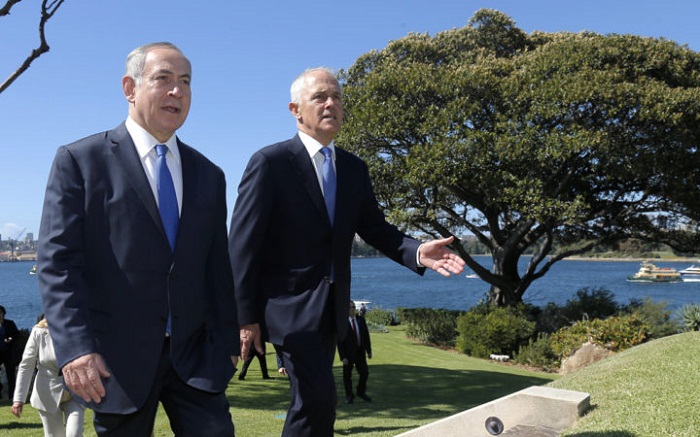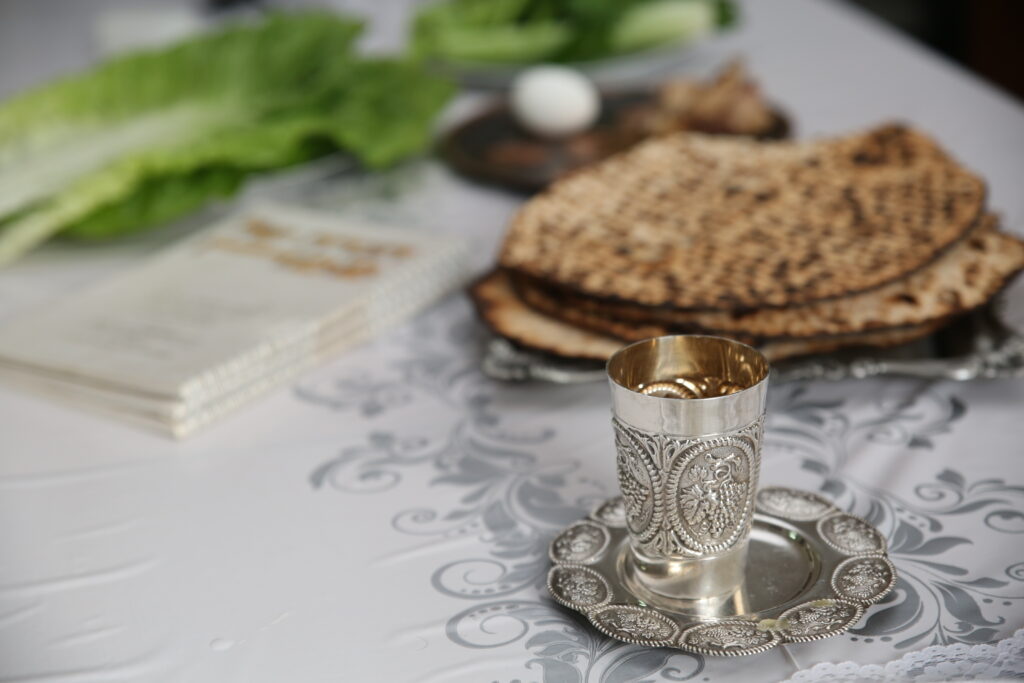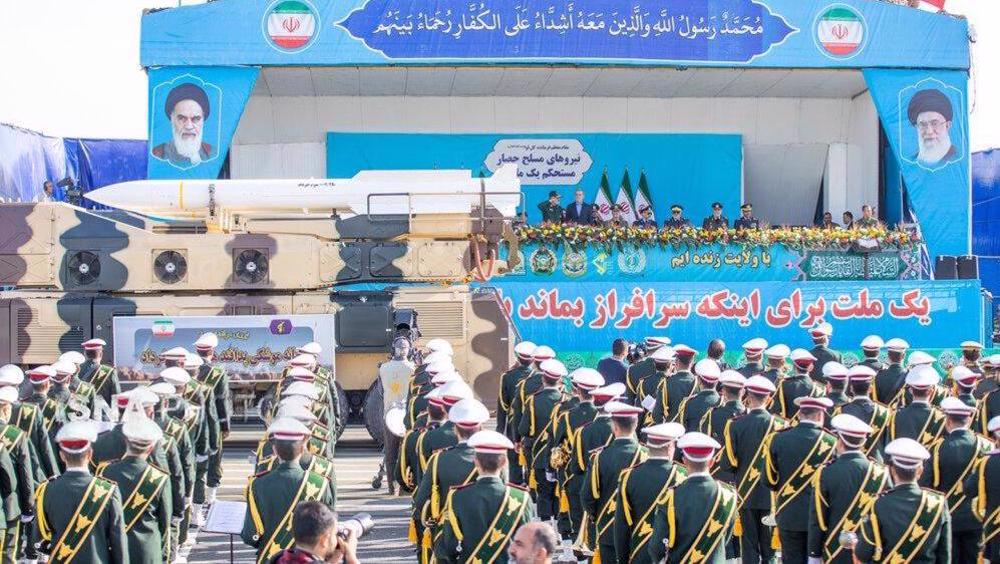FRESH AIR
UPDATES
Netanyahu down-under: The view from Israel’s press
March 3, 2017 | Shmuel Levin

Shmuel Levin
As noted by Jerusalem Post journalist Herb Keinon, Israel often devotes much of its diplomatic energy towards its European critics, relative to that afforded towards good friends like Australia. As such, the recent visit by Israeli Prime Minister Benjamin Netanyahu to Australia, a strong friend of Israel, gave the media a chance to focus on a change to this modus operandi.
In this light, the Jerusalem Post‘s coverage of Netanyahu’s Australian visit began with an extensive pre-departure interview of Dave Sharma, Australia’s ambassador to Israel, discussing the visit’s “symbolic and historic significance” and the “incredibly close relationship”. Even on security, Sharma noted that Israel has “the same strategic language as we [Australia] do and has the same sort of strategic culture”, making Israel “particularly important”.
The Australian government’s strong support for Israel was also discussed, including the Australian Prime Minister’s “strongly pro-Israel piece” that was published in The Australian on the day of Netanyahu’s arrival. As Netanyahu landed in Australia, the Post noted “a degree of public warmth” that is “rarely displayed during Netanyahu’s trips abroad”. Similarly, in describing Netanyahu’s address at Sydney’s Central Synagogue, the Post noted how “the Jews from distant Australia applauded” for Netanyahu.
Yet, while noting the amiability between the two countries, Keinon also pointed out the accompanying “Zionist dilemma: “What should Diaspora Jews do? Make the land of their birth greater, or take their talents with them and move to Israel?” In this light, Keinon noted Turnbull’s praise for Australian Jewish heroes, such as the great Australian Sir John Monash, but also noted Netanyahu’s subsequent designation of Monash as “the exception” to a history of Jewish diaspora persecution. Keinon argued that Netanyahu chose to walk the “tightrope between not wanting to be impolite to his host” while still signalling to Jewish students that “their place is in the Jewish homeland”.
The Jerusalem Post also commented on anti-Netanyahu protests that occurred during the visit and the cancelled Melbourne leg of the trip. Much was also made of calls within the Australian Labor Party to recognise a Palestinian state. And, in one piece, the Post argued that the visit provided domestic benefits for both leaders, as a distraction from their respective political troubles.
By contrast, the left-leaning Haaretz also made mention of Netanyahu “leaving settlers and investigations behind”, but offered very little substantive detail of the actual visit and made almost no mention of its official aims. Somewhat ironically, Haaretz chose not to report Turnbull’s strong statements of support for Israel, and instead focused on Turnbull’s affirmation of the two-state solution in light of US President Donald Trump raising the possibility a one-state solution. The paper also published a lengthy opinion piece by Chemi Shalev in both Hebrew and English which briefly noted the Zionist “claim that they didn’t take Palestine away from another people but were rather reclaiming their ancient homeland”, but which nevertheless drew a series of parallels between indigenous Australians and Palestinians.
The coverage by Haaretz can be strongly contrasted with that of the pro-Netanyahu Israel Hayom. The latter published significant portions of Turnbull’s comments at the joint press conference, citing the strong connections between the two countries: “We have so much in common, shared values, democracy, freedom, the rule of law. Two great democracies, one very small in area, one vast, but each of us big-hearted, generous, committed to freedom. Prime Minister, you are so welcome here in Australia.”
Israel Hayom also ran a lengthy interview with Australia’s Industry, Innovation and Science Minister Arthur Sinodinos. The interview described how the Australian government believes it has “a lot to learn from Israel… in the innovation space and in the business space, more generally” and that Australia seeks to “maximize our trade with Israel.” The paper noted Netanyahu’s statements that trade “should double or triple” and Netanayahu’s praise of Turnbull for “time and again standing up against the demonization” of Israel in the UN.
While the more centrist Yedioth Ahronoth also mentioned Turnbull’s reiteration of support for a two-state solution, this was juxtaposed with mention of Turnbull telling reporters that Australia “is a consistent friend of Israel’s” and of Turnbull’s opinion piece in The Australian. Yedioth also noted the mutual desire to increase business and travel links. Similarly, Yedioth noted the “warm welcome from Turnbull and Sydney’s Jewish community”, but also chose to mention Palestinian protests and the critical statement released by Australian National Imams Council.
Likewise, The Times of Israel also offered extensive coverage of the visit, publishing multiple articles throughout its duration. This included lengthy outlines of Netanyahu’s itinerary in Australia, and it also noted the various anti-Israel protests which took place. The coverage also included highlights from the leaders’ statements, such as Netanyahu’s praise of Australia for being “courageously willing to puncture UN hypocrisy” and excerpts from Turnbull’s piece in The Australian.
Interestingly, a piece by Raphael Ahren noted that only Australia had explicitly committed to a two-state solution in a joint declaration between the countries, although Israel had not walked back from its “previous commitment to accept, in principle, a demilitarized Palestinian state that recognizes Israel as a Jewish state”. Additionally, in another piece, The Times of Israel outlined Netanyahu’s two-hour flight detour, to avoid flying over Indonesian airspace, and briefly discussed Israel-Indonesia relations.
Image Source: AAP Image/Reuters Pool, Jason Reed
RELATED ARTICLES

Enormous hope that Iran is being liberated: Colin Rubenstein on Sky News

He survived Bondi. Now he’s fighting back: Arsen Ostrovsky addresses AIPAC conference





















